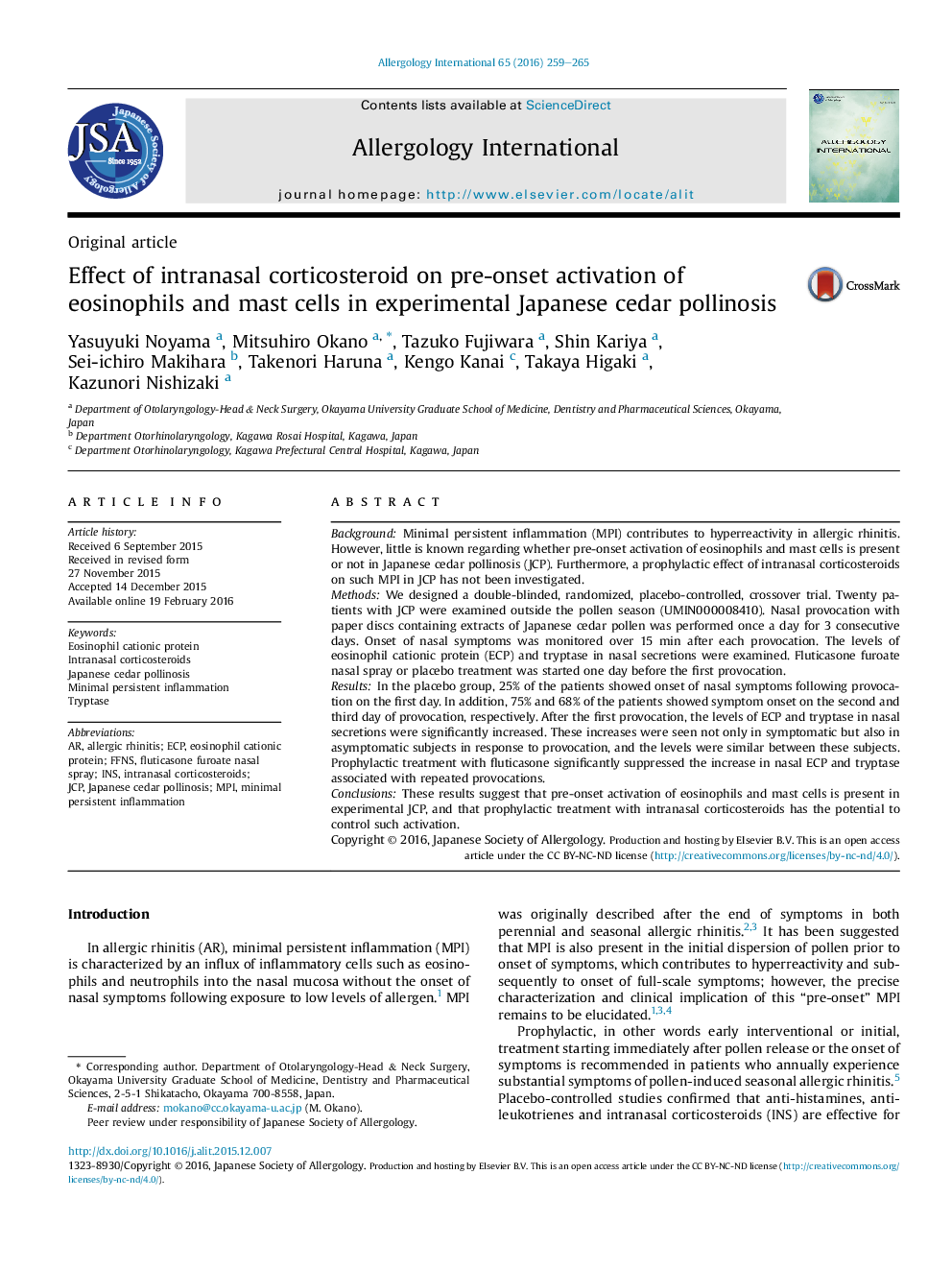| Article ID | Journal | Published Year | Pages | File Type |
|---|---|---|---|---|
| 3340448 | Allergology International | 2016 | 7 Pages |
BackgroundMinimal persistent inflammation (MPI) contributes to hyperreactivity in allergic rhinitis. However, little is known regarding whether pre-onset activation of eosinophils and mast cells is present or not in Japanese cedar pollinosis (JCP). Furthermore, a prophylactic effect of intranasal corticosteroids on such MPI in JCP has not been investigated.MethodsWe designed a double-blinded, randomized, placebo-controlled, crossover trial. Twenty patients with JCP were examined outside the pollen season (UMIN000008410). Nasal provocation with paper discs containing extracts of Japanese cedar pollen was performed once a day for 3 consecutive days. Onset of nasal symptoms was monitored over 15 min after each provocation. The levels of eosinophil cationic protein (ECP) and tryptase in nasal secretions were examined. Fluticasone furoate nasal spray or placebo treatment was started one day before the first provocation.ResultsIn the placebo group, 25% of the patients showed onset of nasal symptoms following provocation on the first day. In addition, 75% and 68% of the patients showed symptom onset on the second and third day of provocation, respectively. After the first provocation, the levels of ECP and tryptase in nasal secretions were significantly increased. These increases were seen not only in symptomatic but also in asymptomatic subjects in response to provocation, and the levels were similar between these subjects. Prophylactic treatment with fluticasone significantly suppressed the increase in nasal ECP and tryptase associated with repeated provocations.ConclusionsThese results suggest that pre-onset activation of eosinophils and mast cells is present in experimental JCP, and that prophylactic treatment with intranasal corticosteroids has the potential to control such activation.
